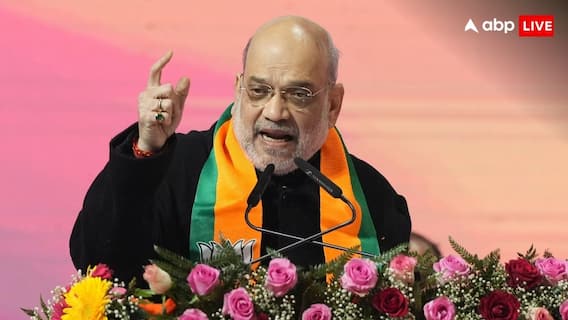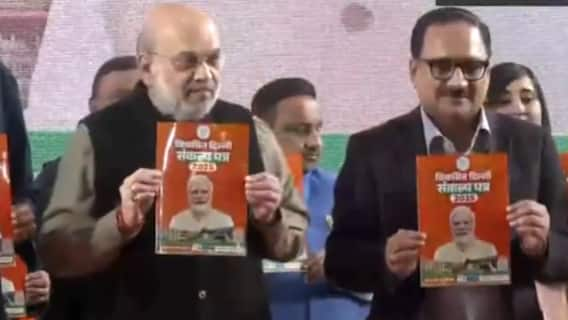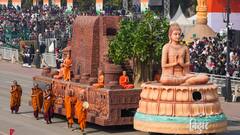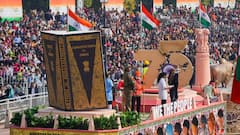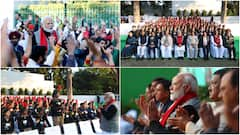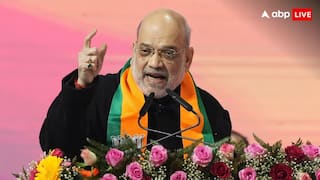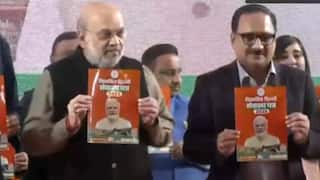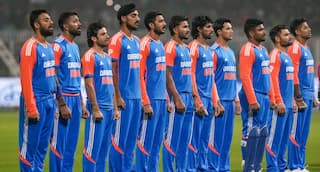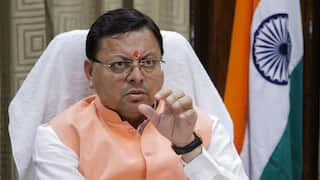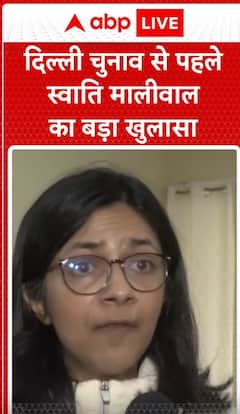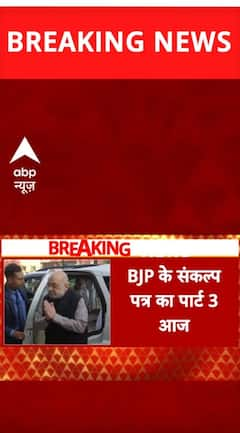Explorer
Supreme Court To Consider Urgent Hearing Of Pleas Against Maratha Quota Law
A bench headed by Chief Justice Ranjan Gogoi took note of the submissions of a lawyer that the petitions which were to be listed for the hearing are not in the causelist of the apex court.

The Supreme Court on Monday agreed to consider according urgent hearing to petitions challenging the constitutional validity of a Maharashtra law that grants reservation to the Maratha community in education and jobs.
New Delhi: The Supreme Court on Monday agreed to consider according urgent hearing to petitions challenging the constitutional validity of a Maharashtra law that grants reservation to the Maratha community in education and jobs. A bench headed by Chief Justice Ranjan Gogoi took note of the submissions of a lawyer that the petitions which were to be listed for the hearing are not in the causelist of the apex court. "You give the memo. We will look into it," said the bench, also comprising Justices Deepak Gupta and Aniruddha Bose, when the lawyer sought urgent listing of the case.
The apex court is seized of five petitions including those filed by J Laxman Rao Patil and lawyer Sanjeet Shukla challenging the Bombay High Court's order which upheld the constitutional validity of the quota. The Bombay High Court, in its June 27 order, had said the 50 per cent cap on total reservations imposed by the Supreme Court could be exceeded in exceptional circumstances. Shukla, a representative of "Youth for Equality", in his petition, said the Socially and Educationally Backward Classes (SEBC) Act, 2018, breached the 50-percent ceiling on reservation fixed by the apex court in its landmark judgment in the Indira Sahwney case, also known as the "Mandal verdict".
The SEBC Act, 2018, was enacted to grant reservation to the Maratha community in jobs and education. The top court had earlier decided to examine the constitutional validity of the law, but refused to stay the Bombay High Court order upholding the statute with some modifications.
The apex court had, however, said that the aspect of the high court's verdict allowing the quota with a retrospective effect, from 2014, would not be made operational. The high court had held, in its June 27 order, that 16 per cent reservation was not justifiable and ruled that quota should not exceed 12 per cent in employment and 13 per cent in admissions. It had also accepted the Maharashtra government's argument that the Maratha community was socially and educationally backward, and it was duty-bound to take steps for its progress.
The high court had said that though the reservation was valid, its quantum -- 16 per cent -- was not justifiable and it should be reduced to 12 per cent and 13 per cent, as recommended by the State Backward Classes Commission. Shukla's plea has challenged the constitutional validity of the law and said framing of the SEBC Act for Marathas was done under "political pressure" and in "full defiance" of the constitutional principles of equality and rule of law. "The high court erred in concluding that the mere fact that other OBCs would have to share their reservation quotas with the Marathas (if the Marathas were simply included in the existing OBC category) constitutes an exceptional circumstance warranting a breach of the 50 per cent ceiling limit set by Indira Sawhney (judgement)," the plea said.
According to the 102nd amendment to the Constitution, reservation can be granted only if a particular community is named in the list prepared by the president. On November 30, 2018, the Maharashtra legislature passed a bill granting 16-per cent reservation to Marathas. The community, which accounts for roughly a third of Maharashtra's population, is politically dominant. The report submitted by the State Backward Classes Commission was based on quantifiable and contemporaneous data and was correct in classifying the Maratha community as socially and educationally backward, the high court had said in its verdict.
Follow Breaking News on ABP Live for more latest stories and trending topics. Watch breaking news and top headlines online on ABP News LIVE TV
View More
Advertisement
Trending News
Advertisement
Advertisement
Top Headlines
Election 2025
Election 2025
World
India
Advertisement


Sagarneel SinhaSagarneel Sinha
Opinion






